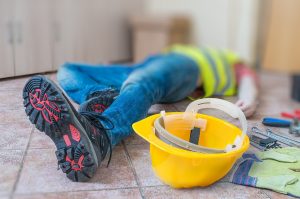Q: How do I take steps to assert my rights to a safe workplace?
A: If you feel that your workplace is unsafe, your first action should be to make your supervisor aware of the danger, then follow up in writing. If you are still unsuccessful in getting the safety hazard corrected, you can file a complaint at the nearest OSHA office.
Q: If I’m injured while working on a construction site, is it possible for me to recover more than just workers’ compensation benefits?
A: Workers’ compensation laws only affect your recovery from your employer, not other parties. If other parties, such as equipment manufacturers, property owners or third-party contractors, are responsible for your injuries, you may be able to recover from them in addition to collecting workers’ compensation benefits.
Q: Is the construction company liable if a person is injured by materials or other debris from a construction site while walking on a public sidewalk next to that site?
A: The injured person may be able to recover damages from the construction company. Contractors owe a duty to the public to warn and guard against known or reasonably foreseeable dangers from a construction site. Further, the warning must be effective, so merely posting a danger sign usually is not sufficient. The contractor also is responsible for providing adequate walkways around or through the site. In this case, materials from a construction site must be stored in such a way so as not to pose a danger to the public.
Q: I was injured while working on a large construction project. Can I sue the person who owns the property?
A: Depending on the amount of authority over the work that the property owner exercised, and the amount of control he or she had over the property itself when the injury occurred, the property owner may be liable for some or all of your injuries.
Q: Will workers’ compensation cover any injury that happens at work?
A: Workers’ compensation covers most injuries that happen at work or during a work-related activity, although there are some exceptions. By definition, workers’ compensation covers any accidental injuries that occur in the course of employment, regardless of whether the employee or the employer is at fault for the injury.
Q: Who is responsible for making sure that the construction site where I work is safe?
A: The property owner and general contractor (and in some cases sub-contractors) are responsible for ensuring the safety of workers at a construction site. The extent of each party’s responsibility will vary depending on your case.
Q: If I file a complaint against my employer to OSHA, can my employer take any action against me?
A: Your employer cannot retaliate or discriminate against you for filing a complaint with OSHA. This includes denying you a raise, decreasing your hours or pay, or transferring or firing you, among other actions. OSHA provides protection against these types of activities, known as “whistleblower” protection. To preserve your rights, you must file a complaint with OSHA within 30 days of the retaliatory or discriminatory action.
Q: I was injured on the job and an investigation showed that my employer violated OSHA regulations. What will this do to support my case?
A: The answer will depend on whether the violation caused your injury and where your case is heard. Some courts have held that the violation of an OSHA regulation in which an injury resulted is negligence per se, meaning that the violation of OSHA is enough proof of the employer’s negligence. Other jurisdictions, however, have found that an OSHA violation can be one factor in finding the employer negligent, but cannot be the only factor.
Q: Should I consult a personal injury attorney to discuss my construction injury claim?
A: Definitely. Your claim may involve complex issues concerning party liability, compliance with safety regulations, engineering and indemnity. A personal injury lawyer who is experienced in the area of construction accident liability can help you determine if you have a case, and if you do, how to pursue it.
